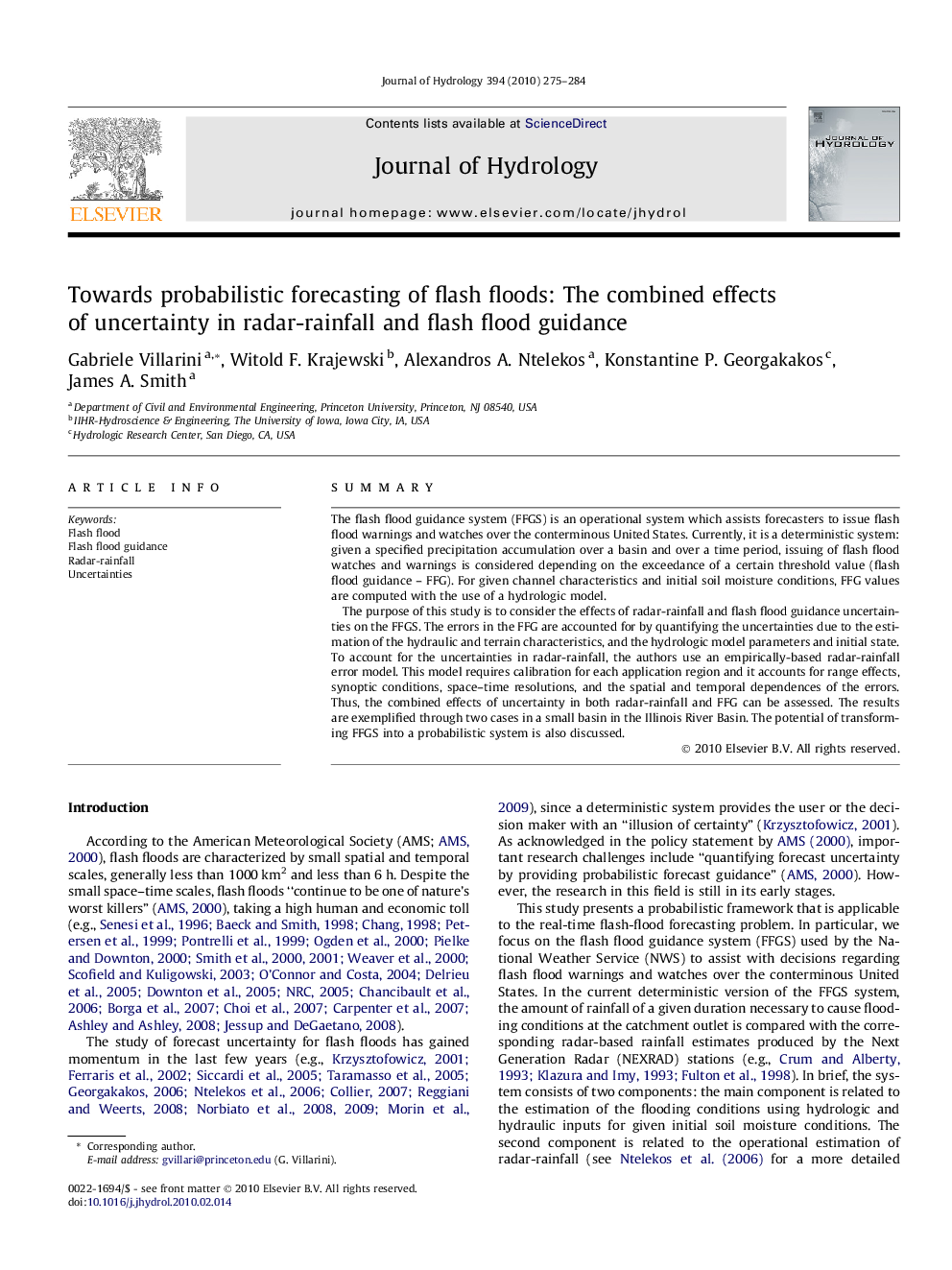| Article ID | Journal | Published Year | Pages | File Type |
|---|---|---|---|---|
| 6414074 | Journal of Hydrology | 2010 | 10 Pages |
SummaryThe flash flood guidance system (FFGS) is an operational system which assists forecasters to issue flash flood warnings and watches over the conterminous United States. Currently, it is a deterministic system: given a specified precipitation accumulation over a basin and over a time period, issuing of flash flood watches and warnings is considered depending on the exceedance of a certain threshold value (flash flood guidance - FFG). For given channel characteristics and initial soil moisture conditions, FFG values are computed with the use of a hydrologic model.The purpose of this study is to consider the effects of radar-rainfall and flash flood guidance uncertainties on the FFGS. The errors in the FFG are accounted for by quantifying the uncertainties due to the estimation of the hydraulic and terrain characteristics, and the hydrologic model parameters and initial state. To account for the uncertainties in radar-rainfall, the authors use an empirically-based radar-rainfall error model. This model requires calibration for each application region and it accounts for range effects, synoptic conditions, space-time resolutions, and the spatial and temporal dependences of the errors. Thus, the combined effects of uncertainty in both radar-rainfall and FFG can be assessed. The results are exemplified through two cases in a small basin in the Illinois River Basin. The potential of transforming FFGS into a probabilistic system is also discussed.
